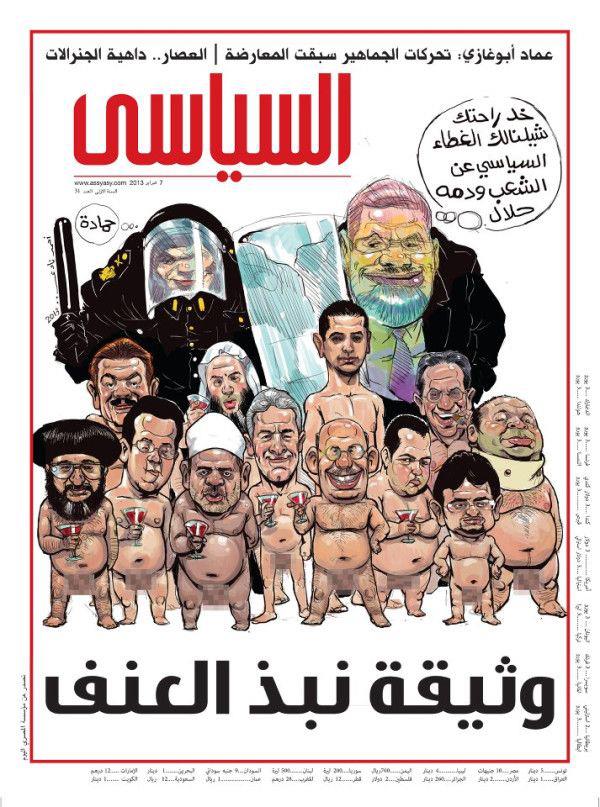Jonathan Guyer, in Jadaliyya, looks at political cartooning under Mubarak, Morsi and the military. His very interesting article (based on a year’s worth of Fulbright research) confirms my sense that there was more freedom of expression under Morsi than before or after — not because the Brother’s weren’t authoritarian, but because they weren’t able to impose their control. All those cases brought against journalists and others for insulting the presidency were also the result of the fact that the presidency was getting mocked and criticized as never before.
The most significant change in Egyptian caricature since 2011 is the implicit permissibility of satirizing the president. Nevertheless, during President Mohamed Morsi’s year in office, the same penal code article maintained that “whoever insults the president… shall be imprisoned.” Yet, according to Judge Yussef Auf, it does not clearly stipulate what insulting the president means or what the precise penalty should be.[3] Additionally, nearly seventy other articles limit freedom of expression. These range from prohibitions against “insults” to the parliament, army, courts, and other public authorities, to injunctions against the reporting of false news. Nonetheless, mocking these institutions became a core part of cartooning even in government-run newspapers, in spite of—or because of—these regulations.
